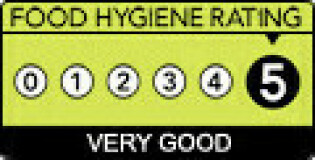Business
Staff
Mrs Maisuria - Head of Department
Miss Sharma - KS5 BTEC Co-ordinator
Mr Bouchaara - Assistant Headteacher
Miss Haque
Mr Uddin
Ms Rabindramohan
Miss Hassan
Ms Begum
Miss Iqbal
Department Overview
Business forms the basis of some of the world’s most exciting, complex and fascinating issues, from the rise of online retailers, due to the decline of the high street, to the collapse of Thomas Cook, to the implications of new technology upon different industries such as Uber. Studying Business at Barking Abbey School allows students to feel confident enough to understand, debate, analyse and evaluate local and global concerns, such as the impact of Brexit, to the implications of climate change upon the car industry. With clear relations to political, social, technological and environmental issues, Business encourages students to think deeply and make connections, developing their character and increasing their awareness of local and global problems. During lessons, the structure of small, local businesses such as Bodeb Florist, Glitz and Glamour Hair Salon and Upney Fish Bar are often used as comparison to the growth of global, multi-national corporations such as Apple and Google. Students enjoy learning through a variety of challenging activities, ranging from participating in the Trading Game, which replicates the world trade market in the classroom, to debates, discussions, case studies, role plays and presentations.
At KS4 we offer:
Edexcel GCSE (9-1) Business
This three year GCSE course is structured into two themes, taking you through how entrepreneurs start businesses (Theme 1) through to growing and becoming a global business (Theme 2).
Theme 1: Investigating Small Business
Theme 2: Building a Business
Theme 1 concentrates on key business concepts, issues and skills involved in starting and running a small business. It provides a framework for students to explore core concepts through the lens of an entrepreneur setting up in business. Theme 2 examines how a business develops beyond the start-up phase. It focuses on the key business concepts, issues and decisions used to grow a business, with an emphasis on aspects of marketing, operations, finance and human resources. It also considers the impact of the wider world on the decisions a business makes as it grows.
Both units are assessed at the end of Year 11, with two written examinations, which are 90 minutes in length. Each paper is worth 50% of the overall qualification, and both papers will consist of calculations, multiple-choice, short-answer and extended-writing questions.
At KS5 we offer:
1) Edexcel A Level – Business
2) Edexcel A Level – Economics
3) Edexcel BTEC Level 3 Business (Diploma/Extended Diploma)
Edexcel A Level – Business
The Pearson Edexcel Level 3 Advanced GCE in Business is structured into four themes and consists of three externally examined papers. Students are introduced to business in Themes 1 and 2 through building knowledge of core business concepts and applying them to business contexts to develop a broad understanding of how businesses work. Breadth and depth of knowledge and understanding, with applications to a wider range of contexts and more complex business information, are developed in Themes 3 and 4, requiring students to take a more strategic view of business opportunities and issues. Students are encouraged to use an enquiring, critical and thoughtful approach to the study of business, to understand that business behaviour can be studied from a range of perspectives and to challenge assumptions.
The course is delivered through exciting debates, in-depth discussions, using newspaper articles and case studies. You will be encouraged to participate in a range of challenging tasks, activities and projects, which will help develop confidence, public speaking and creativity!
Edexcel A Level – Economics
The Pearson Edexcel Level 3 Advanced GCE in Economics A is structured into four themes and consists of three externally examined papers. Students build knowledge and understanding of core economic models and concepts in Themes 1 and 2, and then build on this and apply their knowledge to more complex concepts and models in Themes 3 and 4. Students will need to apply their knowledge and understanding to both familiar and unfamiliar contexts in the assessments and demonstrate an awareness of current economic events and policies.
The course is delivered through formal teaching, discussions, debates, using newspaper articles and case studies. You will be expected to keep up to date with current business and economics affairs and familiarise yourself with the core text outside of the classroom. You will be encouraged to participate in presentations and group work. Over two years of the course, students develop a positive mind-set, as there are weekly opportunities for self-reflection and organisation. Students partake in exciting and stimulating activities such as creating economics games and presenting topical issues.
Edexcel BTEC Level 3 Business (Diploma/Extended Diploma)
There are many different career paths for those who wish to work within the business sector. These include management, human resources, finance, marketing and business information management to name but a few, with the opportunity to work both in the UK and internationally.
The Pearson BTEC Level 3 National Extended Diploma in Business is intended for post-16 students wanting to continue their education through applied learning, and who aim to progress to higher education and ultimately to employment, possibly in the business sector. The qualification is wide-ranging, and at Barking Abbey, we offer the opportunity to study the equivalent of 1, 2 or 3 A levels. This gives students the flexibility to combine this qualification with other A level subjects.
Everyone taking this qualification will study seven mandatory units, covering the following content areas:
1) Exploring the business environment
2) Developing a marketing campaign
3) Personal and business finance
4) Managing an event
5) International business
6) Principles of management
7) Business decision making
The requirements of the qualification mean that students will develop the transferable and higher-order skills that are highly regarded by higher education and employers. For example, the study of principles of management requires you to research and provide evidence to support proposed management solutions, and then to evaluate and justify your propositions, basing your responses on different case scenarios. This activity requires the application of the higher-order skills of evaluation, reflection and justification.
“Always deliver more than expected.”
Larry Page







